Masters of the Market: A Chronicle of Visionaries and Fortunes in the Financial Realm


In the ever-shifting landscape of financial markets, a select group of individuals has transcended the ordinary, leaving an indelible mark on the world of investing and trading. This article takes you on a journey through the triumphs and strategies of ten titans who have shaped the financial realm with their astute acumen. So lets explore “Masters of the Market: A Chronicle of Visionaries and Fortunes in the Financial Realm”. Read more such articles on Vantage Vista Blog.
Masters of the Market: A Chronicle of Visionaries and Fortunes in the Financial Realm
George Soros – The Currency Maverick
George Soros, the man who famously broke the Bank of England in 1992, is a pioneer in currency speculation. His Quantum Fund and his adept understanding of global markets have made him a legend in the trading world.
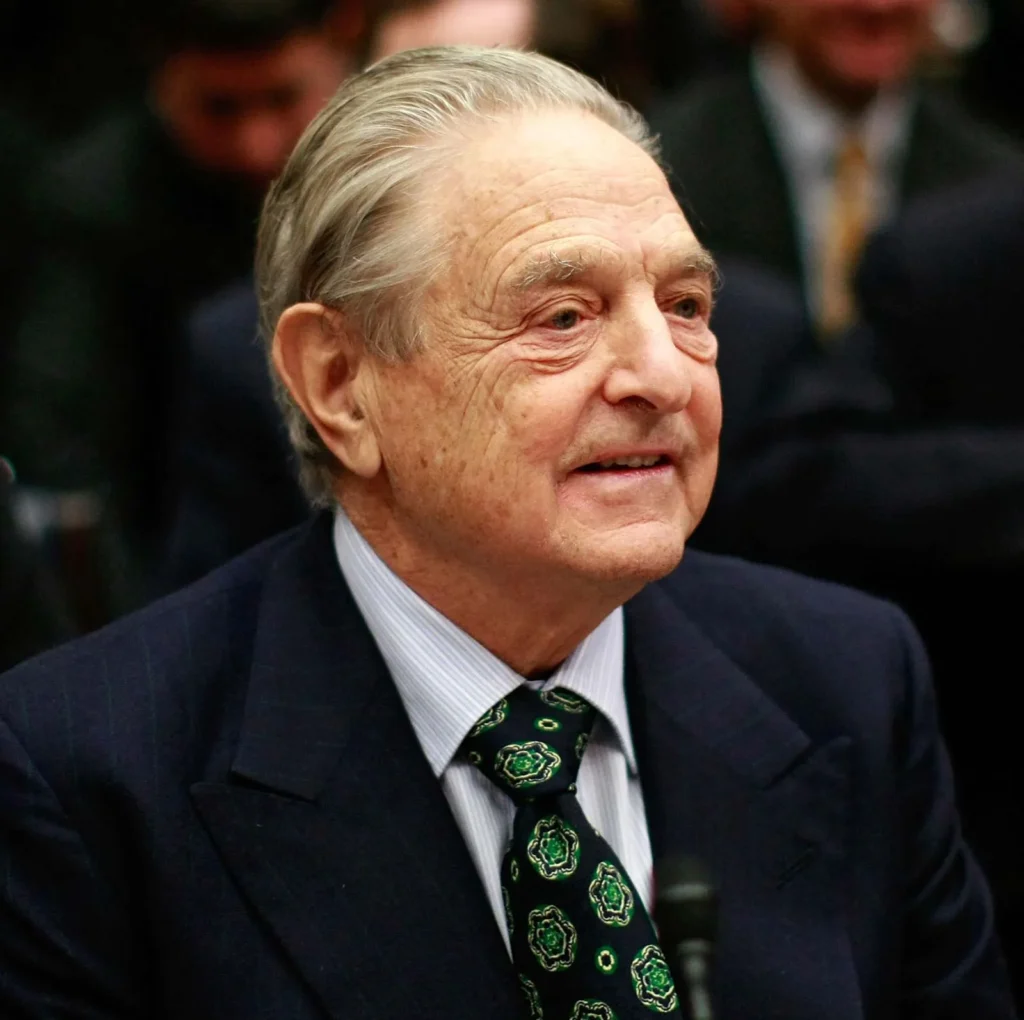
Background: George Soros was born on August 12, 1930, in Budapest, Hungary. He survived the Nazi occupation and later emigrated to England in 1947. Soros studied at the London School of Economics, where he was introduced to the ideas of philosopher Karl Popper, which greatly influenced his thinking.
Investment Philosophy: Soros is best known for his success as a hedge fund manager and his currency speculation. His investment philosophy is influenced by reflexivity theory, a concept he developed based on Karl Popper’s ideas. According to Soros, markets are not always efficient; they can influence the fundamentals they are supposed to reflect.
Quantum Fund: In 1973, Soros founded the Quantum Fund, a hedge fund that became incredibly successful. The fund’s most famous achievement was shorting the British Pound in 1992. Soros bet against the pound in a trade that ultimately forced the British government to withdraw the currency from the European Exchange Rate Mechanism (ERM), earning Soros an estimated $1 billion in profit.
Philanthropy: Soros is also widely known for his philanthropic efforts. The Open Society Foundations, founded by Soros, supports various causes globally, promoting democracy, human rights, and social justice.
Political Activism: George Soros has been involved in political activism and has supported various political causes and candidates. His political activities have sometimes made him a controversial figure.
Warren Buffett – The Oracle of Omaha
Warren Buffett, with his timeless investment philosophy grounded in value and long-term thinking, is the chairman and CEO of Berkshire Hathaway. His journey from a young investor to a financial icon is a testament to the power of strategic, patient investing
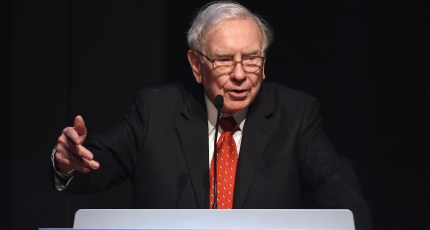
Background: Warren Buffett, born on August 30, 1930, in Omaha, Nebraska, is widely regarded as one of the most successful investors in the world. He developed an early interest in business and investing and began buying stocks at a young age.
Investment Philosophy: Buffett’s investment philosophy is grounded in value investing. He looks for companies with strong fundamentals, a competitive advantage, and competent management. His famous approach is to invest in businesses that he understands and believes will generate consistent returns over the long term.
Berkshire Hathaway: Buffett is the chairman and CEO of Berkshire Hathaway, a multinational conglomerate and one of the largest publicly traded companies in the world. Under his leadership, Berkshire Hathaway has grown into a diverse holding company with investments in various industries, including insurance, energy, consumer goods, and technology.
Long-Term Approach: Buffett is known for his long-term approach to investing. He emphasizes the importance of holding investments for the long haul and is famously quoted for saying, “Our favorite holding period is forever.”
Philanthropy: Buffett is a notable philanthropist. In 2006, he announced plans to donate the majority of his wealth to philanthropic causes, primarily through the Bill and Melinda Gates Foundation. The Giving Pledge, which Buffett initiated with Bill and Melinda Gates, encourages wealthy individuals to commit to giving away the majority of their wealth to address society’s most pressing problems.
Annual Shareholder Letters: Buffett is known for his annual letters to Berkshire Hathaway shareholders, which are widely read and followed by investors around the world. These letters provide insights into his investment philosophy, economic views, and thoughts on business.
Paul Tudor Jones – The Macro Trading Maestro
Paul Tudor Jones, known for predicting the 1987 market crash, is a hedge fund manager with an affinity for macro trading. His fund, Tudor Investment Corporation, reflects his ability to navigate global economic trends successfully.
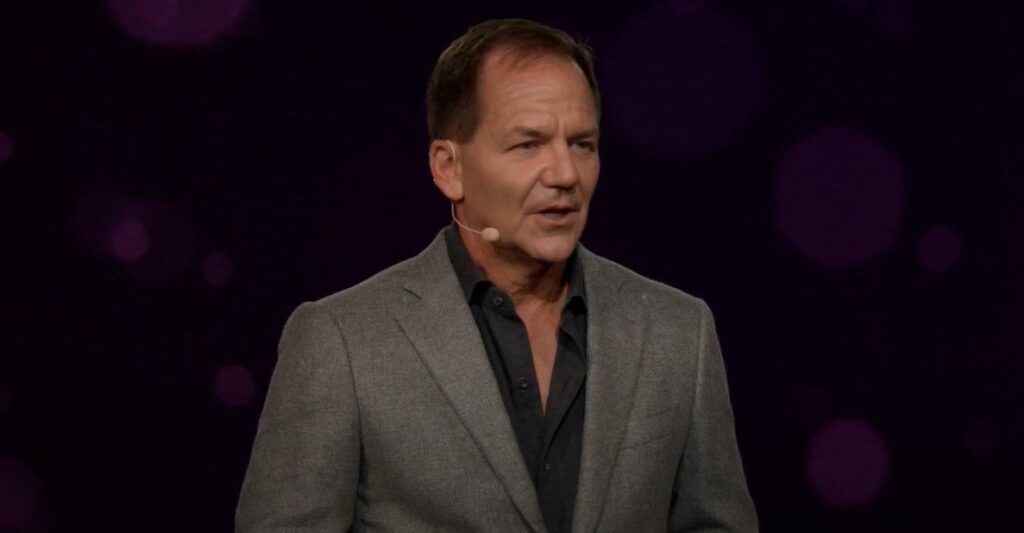
Background: Paul Tudor Jones II was born on September 28, 1954, in Memphis, Tennessee. He is an American billionaire hedge fund manager, philanthropist, and founder of Tudor Investment Corporation.
Investment Style: Jones gained fame for predicting the 1987 stock market crash and has since become known for his expertise in macro trading. Macro trading involves making bets on broad economic trends and global financial markets, considering factors such as interest rates, economic policies, and geopolitical events.
Tudor Investment Corporation: In 1980, Jones founded Tudor Investment Corporation, a hedge fund management firm. The firm’s success is attributed to its ability to navigate and capitalize on macroeconomic trends. Jones’s disciplined approach to trading and risk management has contributed to the longevity and success of Tudor Investment Corporation.
Market Predictions: Jones is known for making bold market predictions. His accurate forecast of the 1987 market crash, where he reportedly tripled his money, earned him widespread recognition. His ability to anticipate and adapt to market trends has solidified his reputation as a skilled macro trader.
Philanthropy: In addition to his work in finance, Paul Tudor Jones is active in philanthropy. He founded the Robin Hood Foundation, a charitable organization focused on alleviating poverty in New York City. Through his philanthropic efforts, Jones has supported various education and healthcare initiatives.
Environmental Advocacy: Jones has also become involved in environmental causes. In recent years, he has expressed concern about climate change and has committed to supporting sustainable and environmentally friendly business practices.
Ray Dalio – The Systematic Strategist
Ray Dalio, founder of Bridgewater Associates, has revolutionized investing with his systematic and principles-driven approach. His insights into economic cycles and market behavior have made him a trailblazer in the hedge fund industry.

Background: Ray Dalio, born on August 8, 1949, in New York City, is an American billionaire investor, hedge fund manager, and philanthropist. He is the founder of Bridgewater Associates, one of the world’s largest hedge funds.
Bridgewater Associates: Dalio founded Bridgewater Associates in 1975. The firm has gained renown for its systematic and principles-driven approach to investing. Bridgewater utilizes a unique culture of radical transparency and an emphasis on meritocracy in its decision-making processes.
Principles: One of Dalio’s notable contributions to the financial world is his compilation of investment principles, which he detailed in his book “Principles: Life and Work.” These principles include the importance of embracing reality, radical open-mindedness, and the use of algorithms and data-driven decision-making in the investment process.
Economic Cycles and Debt Crises: Dalio is known for his insights into economic cycles and his ability to navigate debt crises. He gained recognition for accurately predicting the global financial crisis of 2008 and has been an influential voice on economic and market conditions.
All Weather Fund and Pure Alpha Fund: Bridgewater’s All Weather Fund is designed to perform well in any economic environment, while the Pure Alpha Fund seeks to capitalize on macroeconomic trends. Both funds have contributed to Bridgewater’s reputation as a pioneer in the hedge fund industry.
Philanthropy: Dalio and his wife, Barbara, are active philanthropists. They have committed to giving away the majority of their wealth through the Dalio Foundation, which supports various causes, including education, healthcare, and community development.
Practical Economics: Dalio is known for his emphasis on “practical economics” and his belief in the value of understanding how economic and market systems work to make informed investment decisions.
John Paulson -The Subprime Sniper
John Paulson gained notoriety for his shrewd bets against the subprime mortgage market, reaping immense profits during the 2008 financial crisis. His strategic thinking and risk management skills define his impactful career
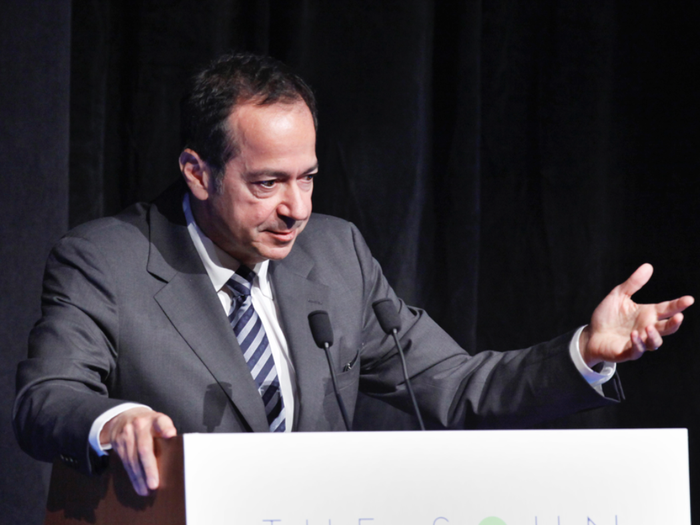
Background: John Alfred Paulson was born on December 14, 1955, in Queens, New York. He is an American investor and hedge fund manager, best known for his successful bets against the subprime mortgage market during the 2008 financial crisis.
Early Career: Before gaining notoriety for his subprime mortgage bets, Paulson had a successful career in mergers and acquisitions. In 1994, he founded Paulson & Co., a hedge fund that initially focused on risk arbitrage and event-driven strategies.
The Big Short – Subprime Bet: John Paulson’s most significant success came from his foresight in predicting the collapse of the subprime mortgage market. In 2007, Paulson orchestrated a series of complex credit default swap transactions, essentially betting against the housing market. When the housing bubble burst in 2008, Paulson’s hedge fund profited immensely, reportedly making him one of the highest-earning hedge fund managers that year.
Other Successful Bets: While Paulson’s subprime mortgage bet brought him widespread attention, he has been involved in other successful investment strategies. His fund has engaged in various event-driven and distressed-asset investments, contributing to its overall performance.
Challenges and Controversies: Following the success of his subprime bets, Paulson faced challenges and controversies. Some of his subsequent investment decisions did not perform as well, leading to criticism and investor redemptions. The performance of his funds became a topic of discussion in the financial industry.
Real Estate Investments: Paulson has also been involved in real estate investments. In the aftermath of the financial crisis, his focus shifted to distressed real estate assets, and his firm engaged in various real estate-related transactions.
Philanthropy: Paulson is known for his philanthropic activities. He has donated significant sums to various causes, including education and healthcare. His contributions to charitable organizations have been acknowledged in different circles.
Jim Simons – The Quantitative Genius
Jim Simons, a mathematician turned hedge fund manager, is the architect behind Renaissance Technologies. His groundbreaking work in quantitative trading, particularly the success of the Medallion Fund, has reshaped the landscape of algorithmic investing.
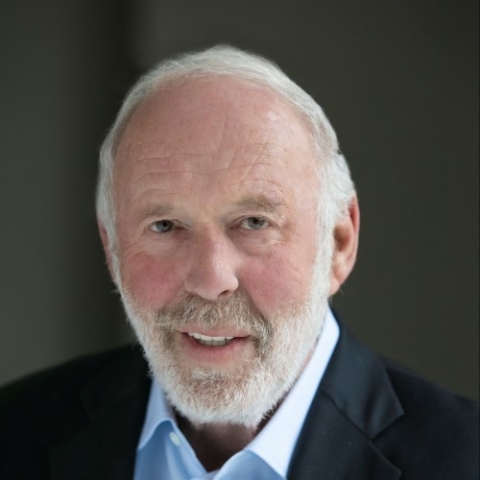
Background: James Harris Simons, born on April 25, 1938, in Newton, Massachusetts, is an American mathematician, hedge fund manager, and philanthropist. He is the founder of Renaissance Technologies, a highly successful quantitative hedge fund.
Academic Career: Before venturing into finance, Simons had a distinguished career in mathematics. He earned a Ph.D. in mathematics from the University of California, Berkeley, and served as a professor at the Massachusetts Institute of Technology (MIT) and Harvard University.
Renaissance Technologies: Simons founded Renaissance Technologies in 1982, aiming to apply mathematical and statistical methods to financial markets. The firm’s flagship fund, the Medallion Fund, has consistently delivered extraordinary returns, making it one of the most successful hedge funds in history.
Quantitative Trading: Under Simons’s leadership, Renaissance Technologies became a pioneer in quantitative trading. The firm utilizes complex algorithms and mathematical models to identify and capitalize on patterns and trends in financial markets. The proprietary trading strategies developed by the firm are closely guarded secrets.
Medallion Fund’s Success: The Medallion Fund, exclusively for employees and their families, has achieved remarkable returns, often surpassing 30% annually. Simons’s quantitative approach has demonstrated the potential of applying rigorous mathematical models to financial markets.
Philanthropy: Jim Simons and his wife, Marilyn, are active philanthropists. They established the Simons Foundation, which supports scientific research in mathematics and the sciences, as well as education and healthcare initiatives. The foundation has made significant contributions to various fields, including autism research.
Rise of Renaissance Technologies: Renaissance Technologies’ success under Simons’s leadership has led to increased interest and recognition in the field of quantitative finance. The firm’s ability to generate consistent profits using mathematical models has reshaped the landscape of algorithmic and high-frequency trading.
Retirement and Legacy: Jim Simons stepped down from the day-to-day operations of Renaissance Technologies in 2009 but remained involved in an advisory capacity. His legacy as a quantitative genius and his impact on the field of finance continue to be acknowledged and studied.
Carl Icahn – The Activist Aggressor
Carl Icahn, a billionaire activist investor, has built a reputation for his aggressive and impactful investment style. His battles with corporate giants reflect his relentless pursuit of shareholder value.

Background: Carl Celian Icahn, born on February 16, 1936, in Queens, New York, is an American businessman, investor, and philanthropist. He gained fame as a corporate raider and activist investor known for taking significant positions in companies and advocating for changes to enhance shareholder value.
Early Career: Icahn began his career on Wall Street in the 1960s as a stockbroker. Over the years, he developed a reputation for his aggressive approach to investing and his willingness to challenge management in underperforming companies.
Corporate Raider Era: During the 1980s, Icahn earned the title of a corporate raider for his hostile takeovers and aggressive moves in various companies. He targeted companies such as TWA, RJR Nabisco, and Texaco, among others. His strategies often involved acquiring significant stakes in companies and pushing for changes in management or corporate strategy.
Activist Investing: Icahn is a prominent activist investor, using his influence to bring about changes in companies’ policies, management structures, and strategic decisions. He is known for buying large stakes in companies and then advocating for actions such as share buybacks, dividend payments, or sales of business units to unlock shareholder value.
Notable Battles: Icahn has engaged in several high-profile battles with corporate executives. One of the most notable instances was his public dispute with Michael Dell over the future of Dell Inc. In this case, Icahn opposed Dell’s plan to take the company private and pushed for a higher share price.
Philanthropy: While known for his aggressive investing style, Icahn is also a philanthropist. The Icahn Charitable Foundation supports various causes, including medical research, education, and community development.
Icahn Enterprises: Icahn is the founder and majority shareholder of Icahn Enterprises, a diversified holding company with investments in various industries, including energy, automotive, and gaming.
David Tepper -The Contrarian Maestro
David Tepper, founder of Appaloosa Management, is celebrated for his contrarian bets and keen market insights. His ability to navigate market downturns has established him as a prominent figure in the hedge fund world.
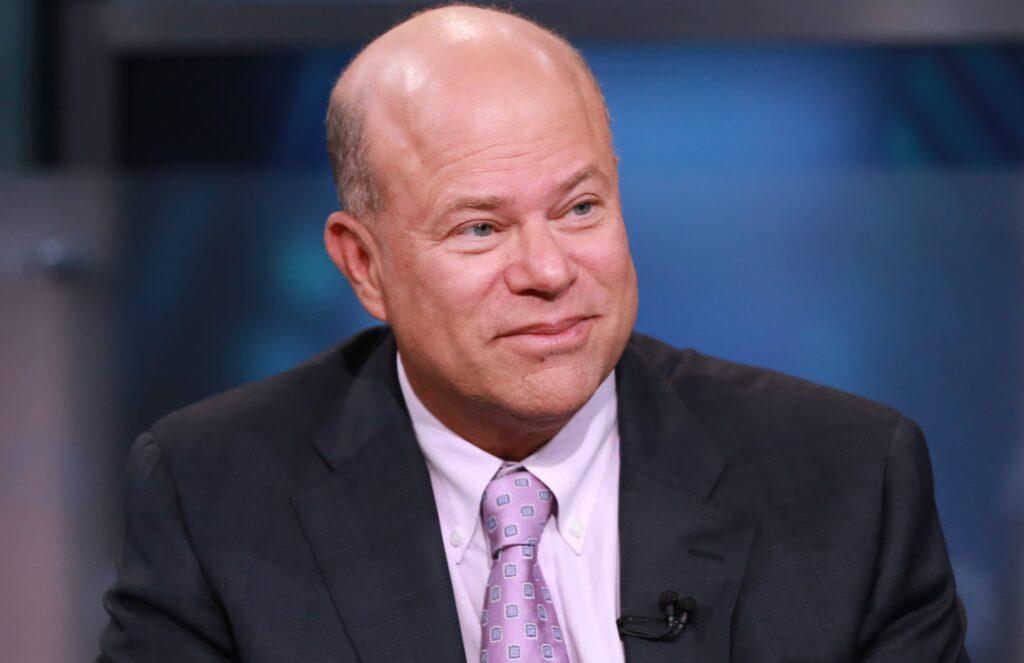
Background: David Alan Tepper was born on September 11, 1957, in Pittsburgh, Pennsylvania. He is an American billionaire hedge fund manager, investor, and philanthropist. Tepper is the founder of Appaloosa Management, a hedge fund known for its contrarian investment strategies.
Early Career: Before launching his own hedge fund, Tepper worked at Goldman Sachs as a credit analyst. He later joined the high-yield bond department at the firm, gaining experience and expertise in distressed debt.
Appaloosa Management: Tepper founded Appaloosa Management in 1993. The firm’s investment approach involves making contrarian bets, often taking positions in distressed companies or assets that the market undervalues. Tepper’s skill in identifying opportunities in distressed markets has contributed to the success of Appaloosa.
Contrarian Bets: Tepper is known for his contrarian views, making bold investment decisions that go against prevailing market sentiment. During the 2008 financial crisis, he made significant profits by correctly predicting the recovery of financial markets and investing in distressed assets.
Steel Industry Investments: One notable contrarian move by Tepper was his investment in the U.S. steel industry when it was facing challenges. His timely bets on steel companies, such as Nucor and U.S. Steel, resulted in substantial returns for Appaloosa.
Move to Appaloosa: Tepper gained wider recognition when he moved to Appaloosa Management. His success in navigating turbulent markets and generating substantial returns for his investors attracted attention within the financial industry.
Return on Investments: Appaloosa Management’s success under Tepper’s leadership has consistently placed him among the highest-earning hedge fund managers. His ability to generate high returns, particularly during challenging market conditions, has solidified his reputation as a contrarian maestro.
Philanthropy: David Tepper is an active philanthropist. He has made significant donations to various causes, including education and healthcare. In 2016, he made a substantial gift to Carnegie Mellon University, his alma mater, resulting in the business school being renamed the Tepper School of Business.
Carolina Panthers Ownership: In 2018, Tepper purchased the Carolina Panthers, becoming the owner of the National Football League (NFL) team.
Stanley Druckenmiller – The Macro Visionary
Stanley Druckenmiller, known for his collaboration with George Soros, is a macroeconomic strategist with a stellar track record. His understanding of global economic trends has solidified his status as a trading luminary.
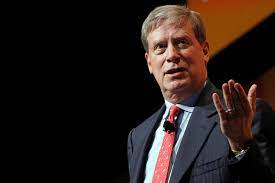
Background: Stanley Freeman Druckenmiller was born on June 14, 1953, in Pittsburgh, Pennsylvania. He is an American billionaire investor and hedge fund manager known for his macroeconomic approach to investing.
Early Career: Druckenmiller began his career in finance at Pittsburgh National Bank. He later worked for George Soros as the lead portfolio manager for the Quantum Fund, where he gained valuable experience and developed a deep understanding of macroeconomic trends.
Quantum Fund and Collaboration with Soros: Druckenmiller’s collaboration with George Soros, particularly during the early 1990s, was instrumental in their success in currency trading. They famously shorted the British Pound in 1992, making significant profits and earning Druckenmiller a reputation as a skilled macro trader.
Duquesne Capital Management: In 1981, Druckenmiller founded his own hedge fund, Duquesne Capital Management. The fund focused on global macroeconomic trends and was known for making large, directional bets based on Druckenmiller’s macroeconomic insights.
Investment Philosophy: Druckenmiller’s investment philosophy is heavily influenced by macroeconomic analysis. He pays close attention to economic indicators, monetary policy, and global trends to inform his investment decisions. His ability to anticipate and react to major shifts in the economic landscape is a hallmark of his approach.
Success and Consistent Returns: Under Druckenmiller’s leadership, Duquesne Capital Management consistently delivered strong returns. His skill in navigating various market environments, including major economic downturns and recoveries, contributed to his reputation as a macro visionary.
Retirement and Family Office: In 2010, Druckenmiller decided to close Duquesne Capital Management and convert it into a family office, managing his own wealth and that of his family. Despite officially retiring from managing outside capital, Druckenmiller has remained active in the financial community, sharing his insights on economic and market developments.
Philanthropy: Druckenmiller is involved in philanthropy through the Druckenmiller Foundation. He has supported various causes, including education and medical research.
Steven Cohen – The Trading Titan
Steven Cohen, founder of SAC Capital Advisors, is a trading titan known for his exceptional prowess in the markets. His journey through the highs and lows of the financial world reflects a relentless commitment to trading excellence
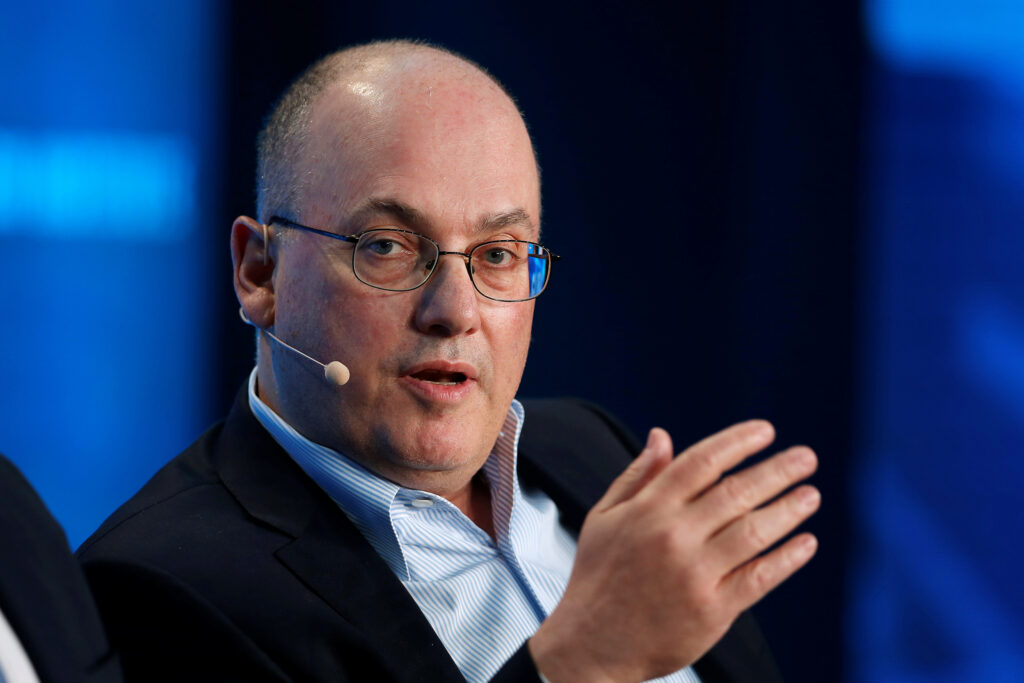
Background: Steven A. Cohen was born on June 11, 1956, in Great Neck, New York. He is an American billionaire hedge fund manager and the founder of Point72 Asset Management, a family office that oversees his personal wealth.
Early Career and SAC Capital Advisors: Cohen began his career on Wall Street in the 1980s, working for Gruntal & Co. In 1992, he founded SAC Capital Advisors, a hedge fund that became one of the most successful and well-known in the industry. SAC, later renamed Point72 Asset Management, was known for its aggressive trading strategies.
Trading Prowess: Cohen gained a reputation as an exceptional trader with a keen instinct for market movements. Under his leadership, SAC Capital consistently delivered high returns, and Cohen himself was considered one of the most successful hedge fund managers in terms of personal earnings.
Focus on Research and Information Edge: Cohen’s success was attributed to an intense focus on research and cultivating an information edge. He built a culture at SAC that emphasized in-depth analysis, rigorous research, and quick decision-making. The firm was known for its extensive use of data and technology in the investment process.
Legal Issues and Insider Trading: Despite his trading success, Cohen and SAC Capital faced legal challenges. In 2013, SAC pleaded guilty to insider trading charges, and Cohen himself was not charged criminally. However, he faced civil charges from the SEC and agreed to a two-year ban from managing outside capital as part of a settlement.
Transition to Family Office: Following the legal issues, Cohen transformed SAC Capital Advisors into a family office, managing his personal wealth. He established Point72 Asset Management as the successor firm to manage the family office’s investments.
Return to Hedge Fund Management: In 2018, after the ban on managing outside capital was lifted, Cohen returned to hedge fund management, launching Point72 Asset Management as a hedge fund. The fund continued its focus on a wide range of asset classes and strategies.
New York Mets Ownership: In 2020, Cohen made headlines by acquiring the New York Mets, becoming the majority owner of the Major League Baseball team.
Philanthropy: Cohen has been involved in various philanthropic activities. He established the Steven & Alexandra Cohen Foundation, which supports initiatives in education, health, veterans, and arts.
From breaking banks to predicting market crashes, these financial luminaries have not only amassed fortunes but have also rewritten the rules of engagement in the financial markets. Their journeys are tales of vision, strategy, and resilience, providing invaluable insights for aspiring investors and traders navigating the complex world of finance. As we delve into the lives of these market masters, we witness the artistry and strategy that have defined their paths to financial greatness.

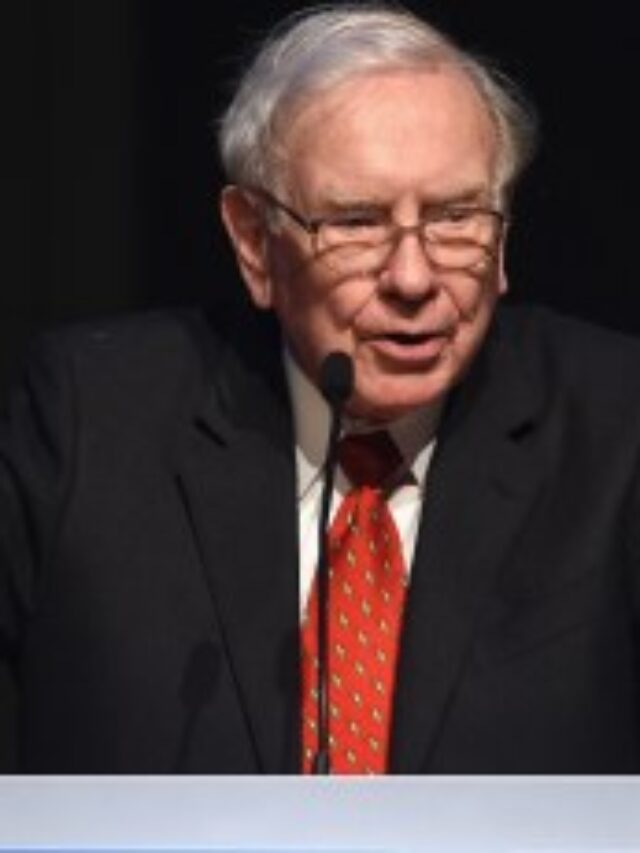
Leave a Reply